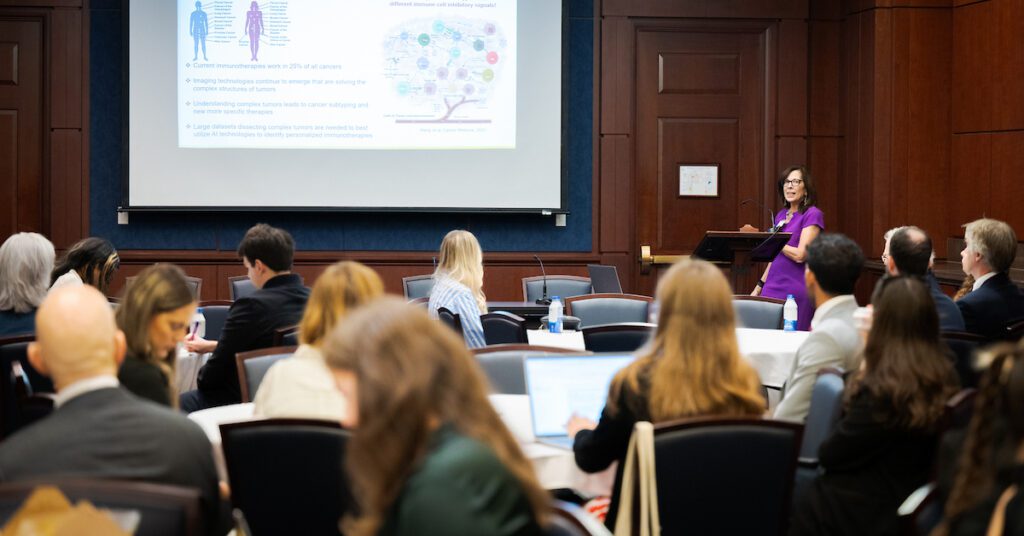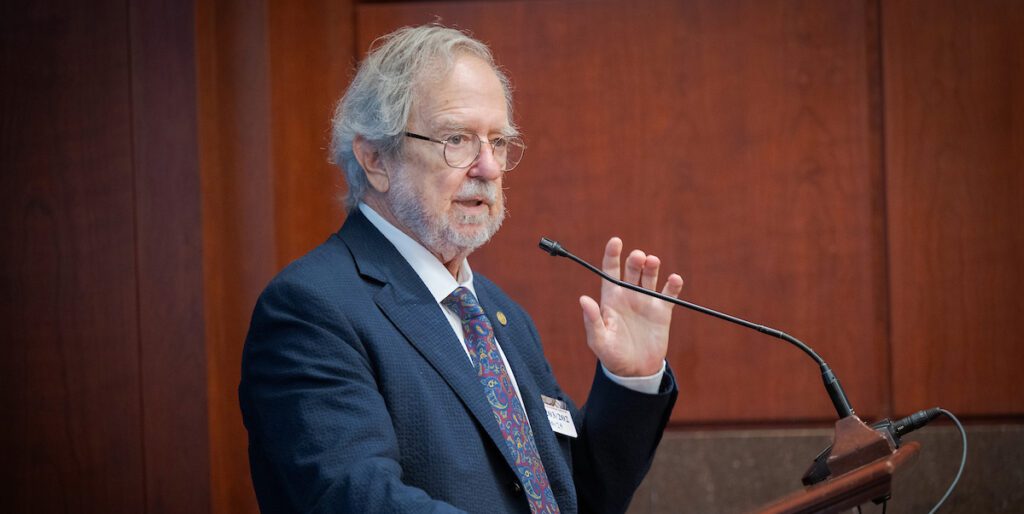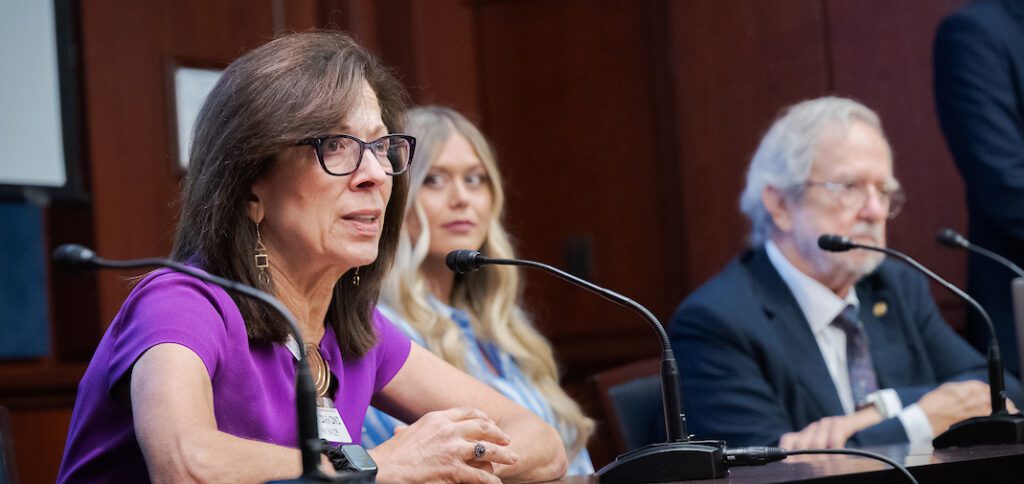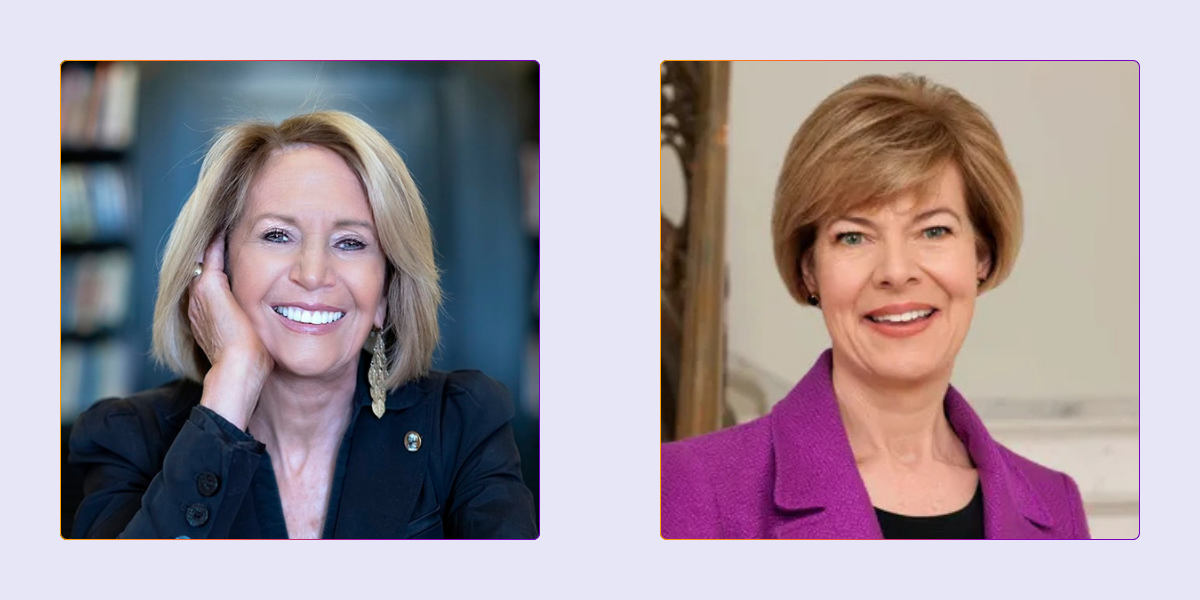
As the federal government approached a shutdown on Tuesday, September 30, AAI held a congressional briefing at the U.S. Capitol to urge Senators and Representatives to support cancer immunotherapy research. The speakers included Nobel Laureate and AAI past president James P. Allison, Ph.D., renowned oncology and immunology researcher Elizabeth Jaffee, M.D., and cancer survivor Alexis Browning. The briefing was well-attended, including many staffers from congressional offices.
AAI President Uli von Andrian, M.D., opened the event by reminding the audience of the importance of basic research. “Today, we hope to illuminate how basic research on how the immune system works led to the life-changing discovery that the immune system could be harnessed to combat cancer, resulting in the revolutionary cancer treatment called immunotherapy,” said Dr. von Andrian.
As she introduced the speakers, AAI Committee on Public Affairs Chair Lauren Ehrlich, Ph.D., stressed the importance of National Institutes of Health (NIH) funding for these endeavors. “Without strong commitment to this research, we risk stalling the very discoveries that could change the future of health.”

Checkpoint Inhibitors and the Rise of Immunotherapy
Dr. Allison began his remarks with the story of a patient at Memorial Sloan Kettering Cancer Center whose metastatic melanoma was effectively eliminated by the very first experimental use of the checkpoint inhibitor ipilimumab in 2004. He spoke with that patient, who is still thriving and cancer-free, just three weeks ago.
Dr. Allison provided the congressional staffers with a basic explanation of his discovery that CTLA-4 acts as a brake on T cell responses. He went on to describe how releasing that brake with a checkpoint inhibitor can dramatically increase the antitumor function of those T cells and lead to long-term remission in many melanoma patients.
Federal Funding Needed to Maintain Advances
Emphasizing the need for stable NIH grants, Dr. Allison said, “We should not be concentrating on the old way of treating cancer, trying to improve survival by a few months. We should concentrate on curing more people, and the only way we’re going to do that is to keep funding research.” It took decades of NIH-funded research to develop cancer immunotherapy treatments that have now given at least 5-year survival to over half a million people.
Dr. Jaffee acknowledged these advances and then asked the rhetorical question: “Why do we need continued NIH support?” Her answer was that the vast complexity of cancer types and subtypes demands a wide range of approaches. In addition to checkpoint inhibitors, she explained, treatments like mRNA vaccines, T cell engagers, and targeting fusion oncoproteins must be deployed in varying combinations against a wide array of cancers.
Using a case study of a patient with fibrolamellar carcinoma, Dr. Jaffee showed slides of phenomenal reduction in tumor mass in both liver and lungs in just three months of fusion protein vaccine treatment. She explained, “When I started in 1992, treating patients with immunotherapy, I would have to say to patients going on treatment the first time, ‘This is likely not going to help you, but you’re helping other people.’” But today, immunotherapy is already helping millions of patients and has the potential to help many more.
A Survivor’s Story
The final speaker was Alexis Browning, who was one of only about 60 Americans to be diagnosed with alveoloar soft-part sarcoma in 2019, when she was 24 years old. Biopsies showed that she had stage IV cancer, which had metastasized to her lungs. As she told the audience, “Cancer doesn’t care if you’re young or have plans for the future.”
Browning’s participation in an NIH clinical trial of the checkpoint inhibitor atezolizumab gave Browning a lifeline, keeping the inoperable masses in her lungs in check. FDA approval of atezolizumab for alveoloar soft-part sarcoma in 2022 meant that she could continue the treatment locally, instead of driving several hours to a trial location every three weeks. Because the immunotherapy does not cause her any side effects, she is able to live a pain-free life.
Browning implored the audience to remember that “rare does not mean insignificant. Continued research doesn’t just mean new drugs. It means new chances for patients like me and the countless others who right now don’t have any treatment options at all.”

Questions from Congressional Staffers
In the Q&A session, one attendee asked Dr. Allison if he thought he’d be able to achieve similar advances as an early career investigator applying for basic science funding in today’s climate. Dr Allison answered simply: “No.” Dr. Jaffee cited the National Cancer Institute payline for R01 grants dropping to the 4th percentile as a specific barrier to attracting and retaining promising early career scientists.
Dr. Allison’s final statements in the briefing were a solemn reminder of how far we have come and how much stands to be lost. “I lived through polio. I’m old enough to know. I’ve seen people in my family die of cancer, who today don’t need to die anymore. I’ve seen people be healed. I don’t want to go back to those old days.”




